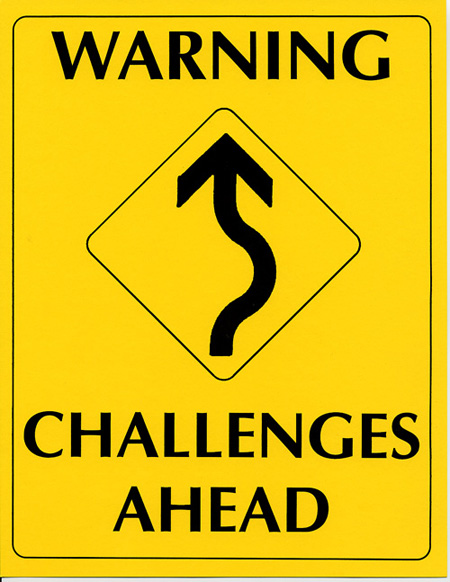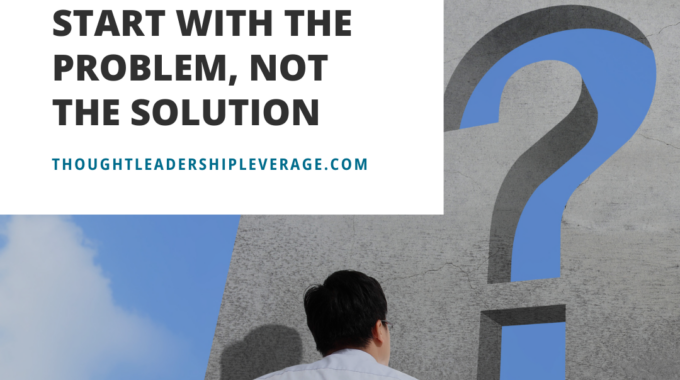Hey, thought leaders! I want to tell you about a powerful approach to thought leadership…
3 Challenges Authors and Thought Leaders Face
I’ve interviewed a wide variety of authors and thought leaders to gain insight into what they struggle with the most. While the range of experience and expertise amongst the group is pretty wide, what is most interesting is that the challenges they face are pretty similar. Their areas of focus and the markets they each choose to serve barely overlap. In fact, even the means and modalities they choose to deliver their content to their respective markets vary immensely, yet three common challenges clearly emerge.
1) Glut of Content: Many thought leaders constantly create new content which is logical – a painter paints, a composer composes and a thought leader creates content. The problem that lies within is twofold. First, if there is not a core theme or an obvious connection across what you create your message will be diluted and not stand out in the crowd. I’m not suggesting that you only stick to a very narrow focus, but if you’re all over the map folks won’t know what to expect from you and more importantly won’t know how to use your work to solve their problems.
The second problem (which I suspect is the more common one) is that creating content is a great thing – it keeps you sharp and relevant. Not effectively monetizing it is the downside. Your content is your primary asset and if you thrive during the creation process but lose momentum when it comes to figuring out how to effectively market it to expand your reach, you are doing yourself a tremendous disservice. Put an equal amount of time (or partner with someone who has the expertise to do this properly) into creating your content as you do into making sure it gets out there in a way that will have impact. That impact can be defined many ways (money, ego, evangelical) but define what impact means to you, put some metrics in place and set some objectives that you can manage to gauge your success.
2) Scale: Scale can mean a lot of different things to a lot of people, but ultimately it means that your work (in whatever format you choose to deploy it) is reaching the right people in the right doses in the right way, and that you are being adequately compensated relative to the effort it takes to create it. A keynote has very little scale and nominal reach. A well executed webinar can scale as can assessment tools, indexes, licensing your work to others, video, e-learning programs and writing.
If you do not have a strategy in place to scale your message, your work and your revenues chances are you are not getting any closer to scaling your work. There is no one size fits all formula as every market is different, but there are best practices you can learn from and deploy. In the digital age it is getting easier and easier to scale but you need to have a deep understanding (or partner with someone that does) of all of the tools, platforms and technologies that are out there. This is not an easy task to master by any stretch of the imagination, but the further behind the curve you fall by not tackling it the harder it is to gain (or regain) momentum.
3) Capitalizing on Your Work: This struggle has come up with almost every thought leader and author I’ve worked with. What makes this interesting is that the range of the activities that these folks are involved in to capitalize on their work.
While some are stuck in the past and continuing to do what used to work, others are on the cutting edge deploying every tool possible, which makes sense; we all would like to make more money and reach more people. But the question is really what is the best path for you based on the nature of your work, your target market, the resources available to you as well as your personal non-negotiables?
What I found was that most do not have clarity on one or more of those questions. Without the clarity people flounder. Some are floundering and struggling to generate any revenue from their work and some are struggling (perhaps silently) while generating substantial revenue. You can’t measure your success against others (although it is human nature to do so). You need to measure it against your own reality.
A first time author should not expect to achieve the same attention and response as a 5 time best-seller that has been in the market for 20 years. The good news is there are more ways than ever to capitalize on your work and eating an elephant is typically something one would do one bite at a time. I don’t find eating elephants pleasant, so I’d strongly suggest investing in a strategy that is aligned with your work, your market, your values and having realistic expectations and a long term time horizon.
Comments (5)
Comments are closed.







Oh, boy. I’m so glad you found me so that I could find you. How gratifying to have someone put my own struggle into words. I want to share my discovery of your work, Peter, so thank you for the work that you do. As a thought leader (blush) I am all over the place creating content. Your article here will appeal to the gifted adults I also try to reach and help by giving them clarity and hope that their talents will blossom. Just wanted to tell you “meeting” you was a nice way to start my day.
Thanks! Glad you enjoyed it.
Very nice article Peter. Thanks for sharing.
One more challenge if I can add – “Too many opportunities to pursue; too little time to pursue them.”
As a thought leader, one’s work opens a lot of new doors and everything looks like an opportunity – provided one has more than 24 hours in a day.
Prioritizing and letting go of opportunities that won’t make sense in the long run is a tough thing to do. But it has to be done 🙂
Best,
Rajesh
Your point is well made. Whether working with individual thought leaders or working with organizations, if we desire high performance, it is imperative that their is a commercial market for what we deliver. Thanks for sharing your insights!
Hi Peter,
I’m facing lately a frequent case of abuse of my work. I found a guy that wanted to commercially use my whole education on CRM. These days I discovered an other “CRM expert” who used my entire concepts and text in a conference and the follow up article. Allthough he refferenced “his” work to some authors, he forgot to mention the article which was the source of the 10% of the used text. To prevent such cases I’m considering to publish my key concepts and intellectual property on my web site. From the other side it will then get even more exposed to abuse. The damage is emotional on the first place. Discovering that someone is claiming your baby as his own is more painful than one could immagine – even in case of intellectual property. I think that I’ll start with a blog post and share my thoughts about it.